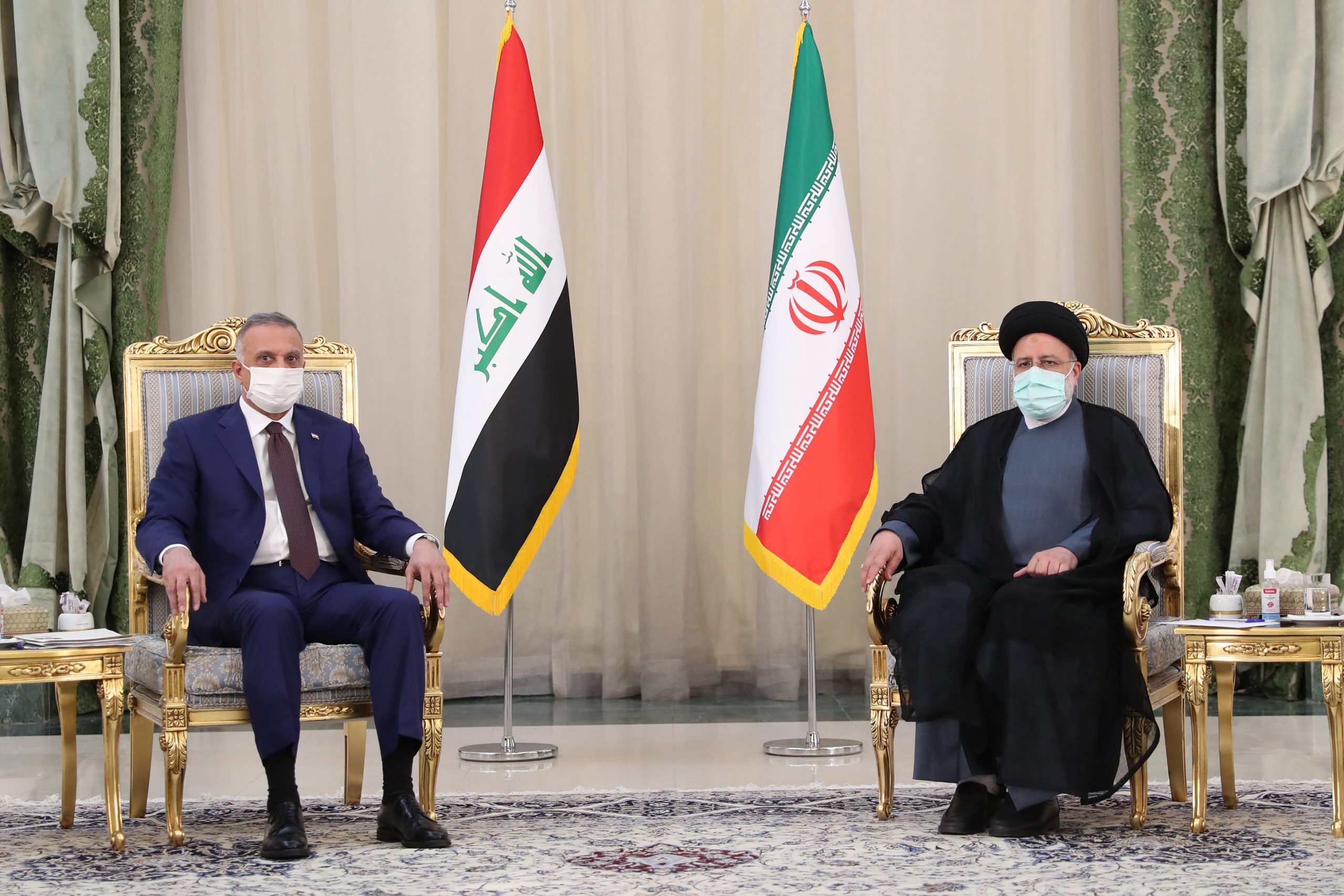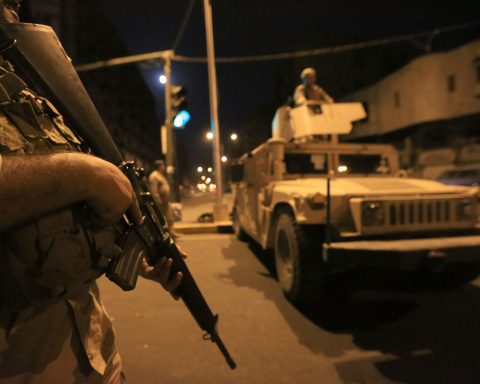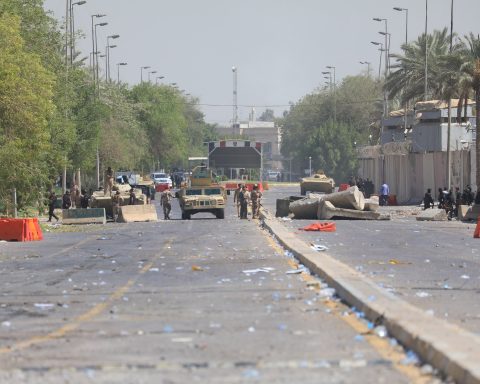After the Iran-backed Fatah Alliance lost power to a great extent in Iraq’s October 10th elections, a militia was killed on November 5, during the days-long protests of the pro-Iranian militia groups that objected to the election results. Two days after the incident, drone attacks were carried out on the home of Iraqi Prime Minister Mustafa al-Kadhimi in Baghdad’s heavily fortified Green Zone, an area that hosts most foreign diplomatic missions. Although no group has yet claimed responsibility, the likely culprits for the assassination attempt on al-Kadhimi are believed to be Iran-backed militia groups that have previously carried out a wide range of attacks on the US Embassy in Iraq and American soldiers. The assassination attempt indicates that the relations between militias and al-Kadhimi, who took office in May 2020, have touched bottom. Furthermore, the assassination attempt reawakened the complexity of relations between Iran and militia groups and also caused discussions about the future of Tehran’s relations with the Baghdad government and al-Kadhimi.
Standoff between Iran and militias?
Iran, which joined the countries that condemned the attack right after the assassination attempt, sent Esmail Qaani, commander of the Quds Force, which is the overseas operations arm of Iran’s Islamic Revolution Guard Corps (IRGC) and predecessor of Qasem Soleimani, who was killed in a US drone strike in January 2020, to Baghdad to ease the months-long tension between al-Kadhimi and Iran-backed militia groups. During his meeting with al-Kadhimi in Baghdad, Qaani condemned the assassination attempt and expressed that Iran would support al-Kadhimi in the face of attempts to destabilize Iraq. Furthermore, it was claimed that Qaani had come together with militia groups and stated that they should not escalate the tension. It is unknown whether Iran had prior knowledge of the assassination. However, Iran’s attitude after the assassination attempt also brings to mind that the incident was carried out without Tehran’s full approval. Considering that it would not be easy for the militias to act independently of Iran and make such a move, the option of a lack of coordination between Iran and Shiite militia groups comes to the fore.
After the killing of Soleimani, the oppositional approaches of some Iran-backed militia groups, particularly Asaib Ahl al-Haq, raised the possibility of friction between militias and Iran. The assassination attempt against al-Kadhimi seems to have greatly worried Tehran, which fears its control over Shiite militia groups would be reduced. On the other hand, the unity of the Iran-backed groups after the attempt may be damaged. Mainstream Iran-oriented political actors, such as Nouri al-Maliki, leader of the State of Law Coalition, and Hadi al-Ameri, leader of the Fatah Alliance, may be uneasy about the extreme approaches of militia groups like Asaib Ahl al-Haq and Kataib Hezbollah. In this respect, Iran’s inability to provide sufficient control over the Iraqi militias may cause them to completely break the bridges through Iraq’s official channels and may accelerate the frictions between the groups it supports. In this context, Iran may limit its support to the militias on some issues. For example, access to drone technology is one of them. This situation may also force Iran to normalize its attitude towards al-Kadhimi.
Seeking a weak prime minister
The option that the assassination attempt took place with the knowledge of Iran should not be excluded. Tehran may have backed down due to the international backlash after the assassination attempt. The more dominant option, however, is that Iran played the good cop by pretending it did not know about the attempt? Because, by giving the impression that militias are uncontrollable, Tehran may also want to push al-Kadhimi to cooperate more closely with Iran in the event of his second term at the office. Although Iran seems to play a more conciliatory role, The Iran-backed militias can continue the tension by expanding the scope of the protests in the next stage if their demands are not met. It is known that controlled tension will be a pressure factor to the detriment of Tehran.
Although al-Kadhimi is recognized as a pro-US prime minister, he was a joint candidate of Washington and Tehran and made his first foreign visit after taking office to Tehran on July 21, 2021. al-Kadhimi was welcomed by the former Iranian President, Hassan Rouhani, with a state ceremony that has not been held for any Iraqi prime minister apart from Iyad Allawi since 2003. It is known that all Iraqi prime ministers are mostly welcomed by Iran’s vice president. Furthermore, al-Kadhimi was the first official of Iran’s Supreme Leader Ali Khamenei to meet outside of Rouhani in the last five months after the coronavirus outbreak. In this sense, it was seen that Iran attached special importance to al-Kadhimi. In particular, al-Kadhimi’s statements about “not interfering in Iraq’s internal affairs” during the visit were found quite brave. However, due to worsening relations between the militia groups and al-Kadhimi, the relationship with Tehran has strained over time. Militias began to threaten al-Kadhimi regularly and flexed their muscles against the government in Baghdad’s streets.
The discussions about al-Kadhimi’s possible second term as prime minister were rejected openly by the militia groups. Both Iran and militia groups began to worry about the prime minister after al-Kadhimi’s experience. Iran and the militias seek a weak and manageable prime minister despite the extensive powers granted by the constitution. In his short tenure, al-Kadhimi took significant steps, albeit limited, in domestic and foreign policy, as well as social and economic fields.
Al-Kadhimi preferred to adopt a balanced foreign policy with diplomatic initiatives, particularly when the US pushed the regional countries to take sides due to its opposition to Iran. In addition to his relations with the Gulf countries, al-Kadhimi also developed warm contacts with Egypt, Jordan, and Turkey. He organized a meeting in which regional actors gathered in Baghdad. Although Iran is uncomfortable with al-Kadhimi due to his regional and global attention, al-Kadhimi’s attempts to contribute to the regional normalization of Tehran by mediating the talks between Saudi Arabia and Iran are lowering the reactions of the Islamic regime against al-Kadhimi. Additionally, due to the fact that al-Kadhimi does not have a political party, Iran does not consider him a rival to the political parties and blocs it supports in Iraq. As long as his political power and popular support are weak, al-Kadhimi can be considered as a negotiable name for Iran.
Particularly, al-Kadhimi became the first state leader to meet with the new Iranian President, Ibrahim Raisi, in September, as a sign showing that the parties could not completely ignore each other. Tehran’s condemnation of the assassination attempt and the arrival of Qaani may be a sign of relative approval of al-Kadhimi’s possible candidacy, even though Tehran did not favor al-Kadhimi’s second term at first. These developments may also soften the harsh attitudes of the militia groups that categorically rejected al-Kadhimi’s second term.
However, the new Iraq government is expected to be formed by the winner of the election, Shiite leader Muqtada al-Sadr. Al-Sadr seeks to establish a majority government, moving away from the model of national unity governments that have dominated Iraq’s political system since the US-led invasion of Iraq in 2003. Although al-Sadr remains close to al-Kadhimi, it is not known whether he will propose the position of prime minister to him or not. Because the assassination attempt targeting al-Kadhimi came after al-Sadr started to meet with political parties to form a government, it was interpreted by the Iran-backed groups as a signal that they should not be excluded from political negotiations. By targeting al-Kadhimi, they expressed their objections to al-Kadhimi being prime minister for a new term. But after pro-Iranian groups suffered a major loss in the elections, Iran’s priority is to maintain its influence in Iraq and consolidate its political presence. Tehran may not show strong resistance to al-Kadhimi as possible tensions between Shiites will negatively affect Iran’s influence on Iraq.
As a result, even though he was a joint candidate of Iran-US, Iran has realized that it is not easy to walk with al-Kadhimi. However, due to the defeat of Iran-backed groups in the elections and the actions that damage Tehran’s reputation, such as the assassination attempt on the prime minister, and the capacity of a leader like al-Sadr, who has a political group and public support to directly determine the prime minister, Iran may once again give the green light to the premiership of al-Kadhimi with some bargaining.














